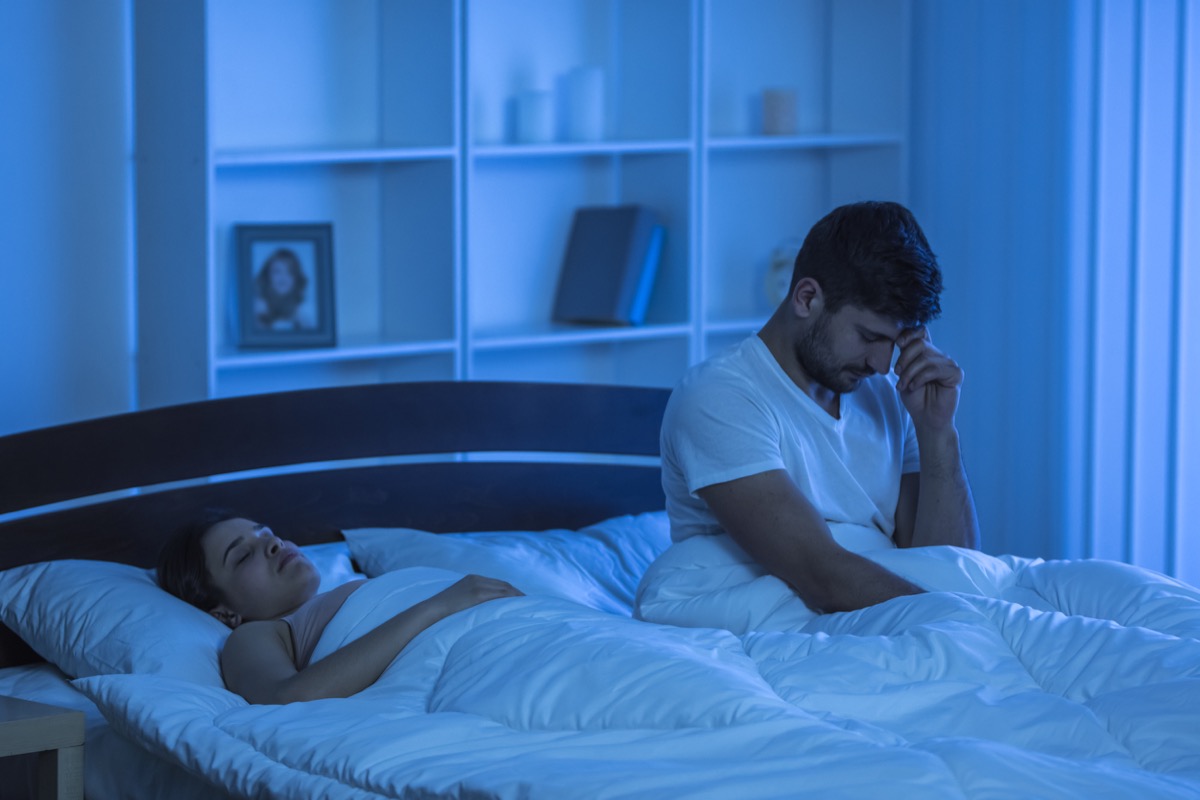If you’re waking up twice or more during the night to pee, you should talk to your doctor about nocturia. According to Adam Ramin, MD, a urologist and medical director of Urology Cancer Specialists in Los Angeles, nocturia is a condition that causes someone to wake up during the night with an urge to urinate—typically “strong enough that it forces a person to leave the bed and go to the bathroom.“ae0fcc31ae342fd3a1346ebb1f342fcb Once you reach middle age, it may be normal to have to get up once in the middle of the night to pee, or twice on occasion, but any more than that is concerning, says David Beatty, MRCGP, a general practitioner with more 30 years of experience. “I might accept twice a night occasionally, but any more than that, and I think it should be checked out,” he says. And for more nightly issues, If You Feel This at Night, You Need to Get Your Liver Checked, Doctors Say. Having to get out of bed to pee multiple times a night can be annoying, but that’s not the only problem. According to Ramin, nocturia may also be the sign of a serious, underlying medical condition. There are a number of diseases that could be causing your nocturia, based in one of three major categories—central nervous system disorders, like brain tumors and sleep apnea; cardiovascular disorders, including heart failure and severe varicose vein disease; and bladder muscle disorders, such as diabetes, bladder cancer, and enlarged prostate, Ramin says. And for more health concerns, If You Drink This Much Coffee a Day, Your Heart’s in Danger, Study Finds. Nocturia could also just be a sign of a urinary tract infection (UTI) or bladder infection, Healthline says. But even these infections can have serious consequences if not treated. Dearbhaile Collins, PhD, a medical doctor at Cork University Hospital, also warns that certain medications, like diuretics and muscle relaxants, can cause nocturia as a side effect. “The first step to treat nocturia is to discover what the underlying cause is and to treat this effectively,” Collins says. “To diagnose the cause, your doctor will take a look at your full medical history, including a medication list, and ask you to keep a fluid intake and urination diary. They can also order a blood test, urinalysis, bladder scan, or cystoscopy.” And for more up-to-date information, sign up for our daily newsletter. Even if the underlying cause isn’t serious, nocturia can still negatively affect your body, says My Pelvic Therapy founder Angela Fishman, PT, a licensed physical therapist who has specialized in the treatment of nocturia. “The more often you wake up at night from your bladder, the more distress this can cause your body,” Fishman says. This can, of course, include reduced total sleep time and more fragmented, lower-quality sleep that leads you to become overly sleepy during the daytime, which “interferes with your focus and can even alter your mood,” according to Fishman. For older adults, Fishman says nocturia can “create a higher rush of falls and fall-related injuries, especially if there is urgency, causing rushing to get to the bathroom in time.” And for more health issues to get checked out, If This Body Part Hurts You at Night, See Your Doctor.
